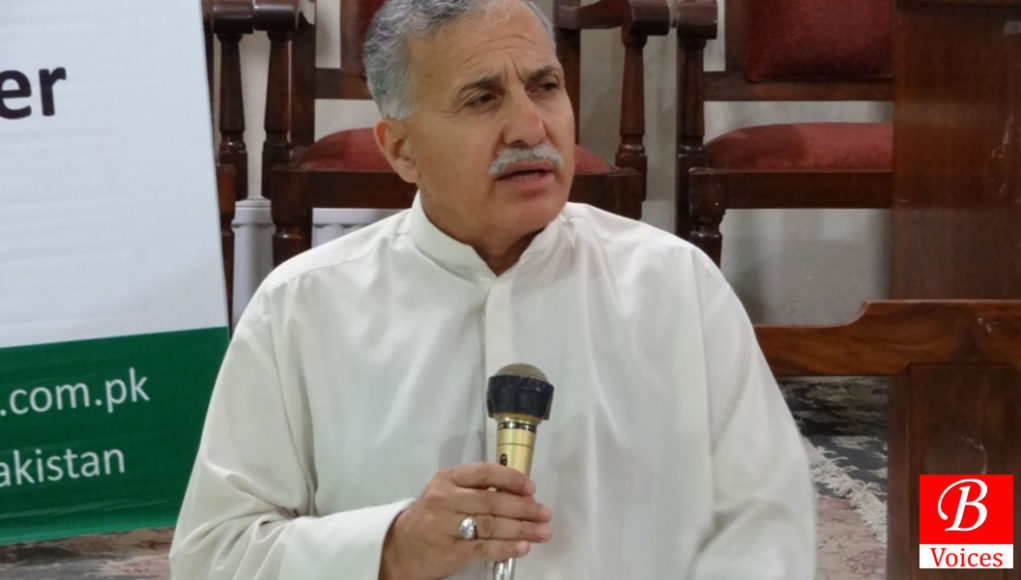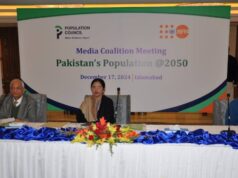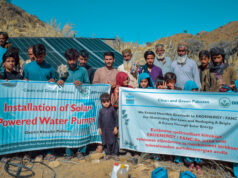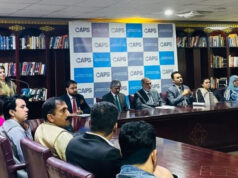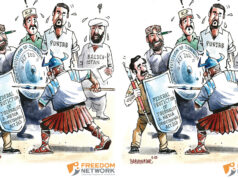Adnan Aamir
On November 29-30, delegates from 13 journalist unions from across the country met in Karachi for the Biennial Delegates Meeting (BDM) of Pakistan Federal Union of Journalists (PFUJ). This meeting is held every two years to elect the leadership of Pakistan’s journalist’s federal body. History was made when Shahzada Zulfiqar, a journalist from Balochistan, was elected the president of PFUJ unopposed on November 30.
Shahzada Zulfiqar was born in 1963 in Kalat district of Pakistan. He belongs to the Ahmedzai clan, which has ruled Kalat state for hundreds of years. After graduating from the University of Balochistan with a Master’s Degree in English Literature in 1986, he decided to choose a profession not very common in his family. He opted to become a journalist. He started his career from the platform of Balochistan Times in 1988. Later, he worked as the correspondent of The Nation in Quetta from 1989 to 2007. During the same period, he also worked for Newsline and Herald magazines.
In 1994, he started working for the French newswire service AFP as a stringer and continues to work at the same position to this date. For AFP and other foreign news services, he extensively covered the turbulent times in Afghanistan from the emergence of the Taliban till their downfall after 9/11. Till 2007, he primarily worked as an English print journalist. Then he switched to electronic media and since then he has worked as bureau chief of multiple news channels. Presently, he is the bureau chief of Bol News in the Balochistan region. He is also the first working journalist from Balochistan who was awarded Presidential Pride of Performance Award in 2017.
Moreover, Zulfiqar entered journalist politics at a very early stage in his career. When he actively joined journalism in 1989, Quetta Press Club was under the control of one man. Late Abdul Kareem Butt, who used to publish a weekly magazine called Pukaar and also had a business of crockery, was the lifelong president of Quetta Press Club. He did not allow any other journalist to interfere in the decision making of the press club. Back then, a group of 36 journalists led by Rasheed Baig and Shahzada Zulfiqar revolted against him and appealed to the court to hold elections in Quetta Press Club. In 1989, the first elections were held in Quetta Press Club and Zulfiqar was elected secretary of the club.
He continued being active in journalist politics since. In 1994, he was elected president of Quetta Press Club. He was re-elected twice. He has been elected president of Balochistan Union of Journalists three times. In early 2000s, he was elected to the Federal Executive Committee of PFUJ. Later, he also served as assistant secretary-general and vice president of PFUJ over the years.
Zulfiqar’s election as president of PFUJ is being celebrated all over Balochistan because he has reached the top journalist body office by doing politics from the grassroots. He is known across the country and was the only person on which all 13 journalist unions unanimously elected as president.
Furthermore, he has been elected president of the apex body of journalists at a time when media is going through a crisis. Whether it is threats to press freedom, or job security or payment of salaries, it is not an easy time to be a leader of the federal body of journalists in the country. Zulfiqar has accepted this daunting task being a lifelong advocate of journalist’s rights.
Talking to The Friday Times, Zulfiqar thanked the leadership of all 13 journalist unions for electing him. He said that his victory shared by the entire journalist community of Balochistan. He dedicated his victory to journalists in Balochistan who lost their lives in the line of duty.
Zulfiqar said there were two main issues on his agenda. “First, journalists are being laid off in large numbers without any justification and second, they are not paid on time,” he said. He added new journalists were paid salaries less than the minimum wage set by the government for non-skilled labour and this practice had to change.
Zulfiqar, who is also a member of the national wage board from Balochistan, claims that a few national level newspapers owe him over half a million in salary dues. “Newspaper publishers have made it a norm to not pay working journalists and that is directly affecting the state of journalism in Pakistan,” he said.
Talking about threats to press freedom in the country, he said journalism was undergoing a very tough period in Pakistan. He vowed to continue the fight for freedom of expression and press for rights of working journalists at all forums. “We will collectively raise our voices for press freedom in the country and make sure that no media owner is able to exploit journalists,” he told The Friday Times.
He urged journalists across the country to unite for their rights. “We will only be able to achieve our targets if we are united. Otherwise, we can’t be effective,” he claimed. “It is about time that journalists in Pakistan reclaim their lost space,” he vowed.
For Zulfiqar to be successful, he needs full support and unity of all journalist unions who have elected him. If these unions are not united and do not stand firmly behind him, then there is very little he can do to deal with the grave problems faced by the journalist community in Pakistan.
Originally published in The Friday Times
Share your comments!


